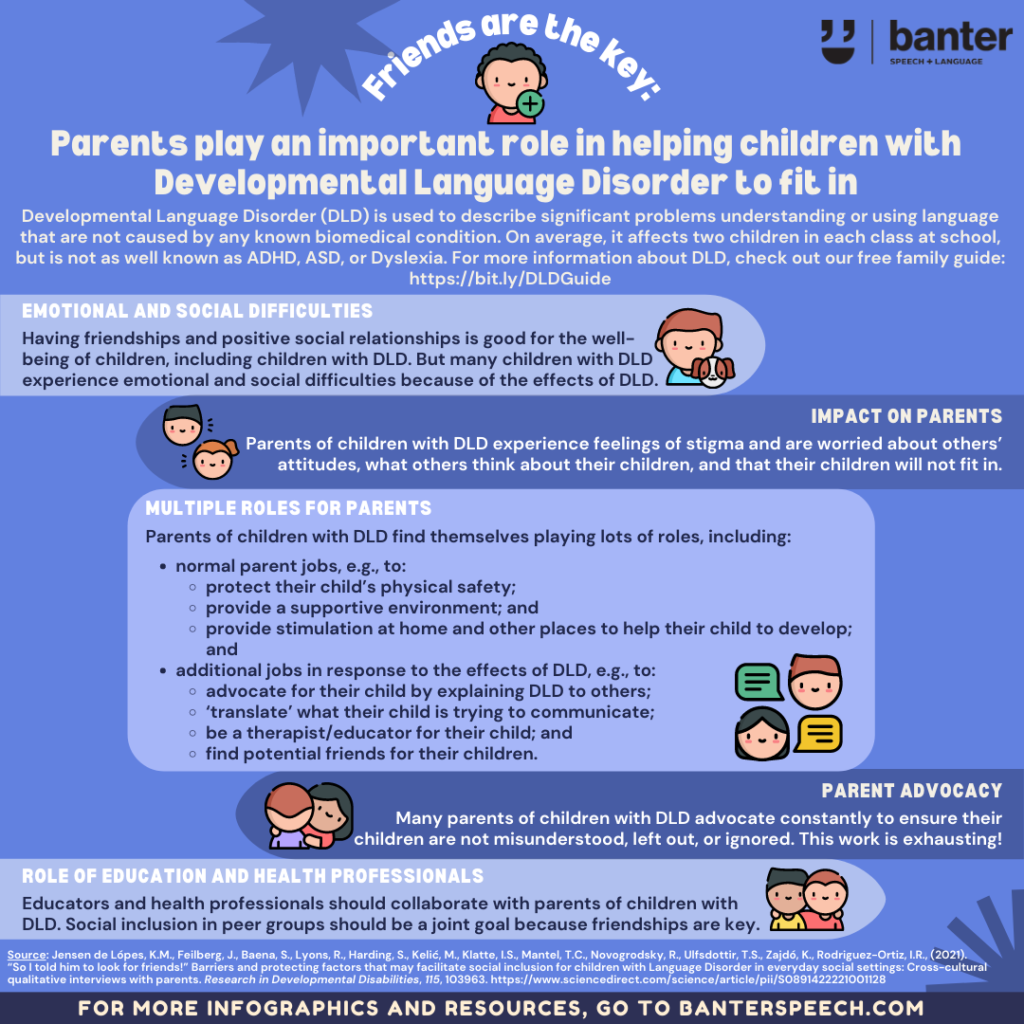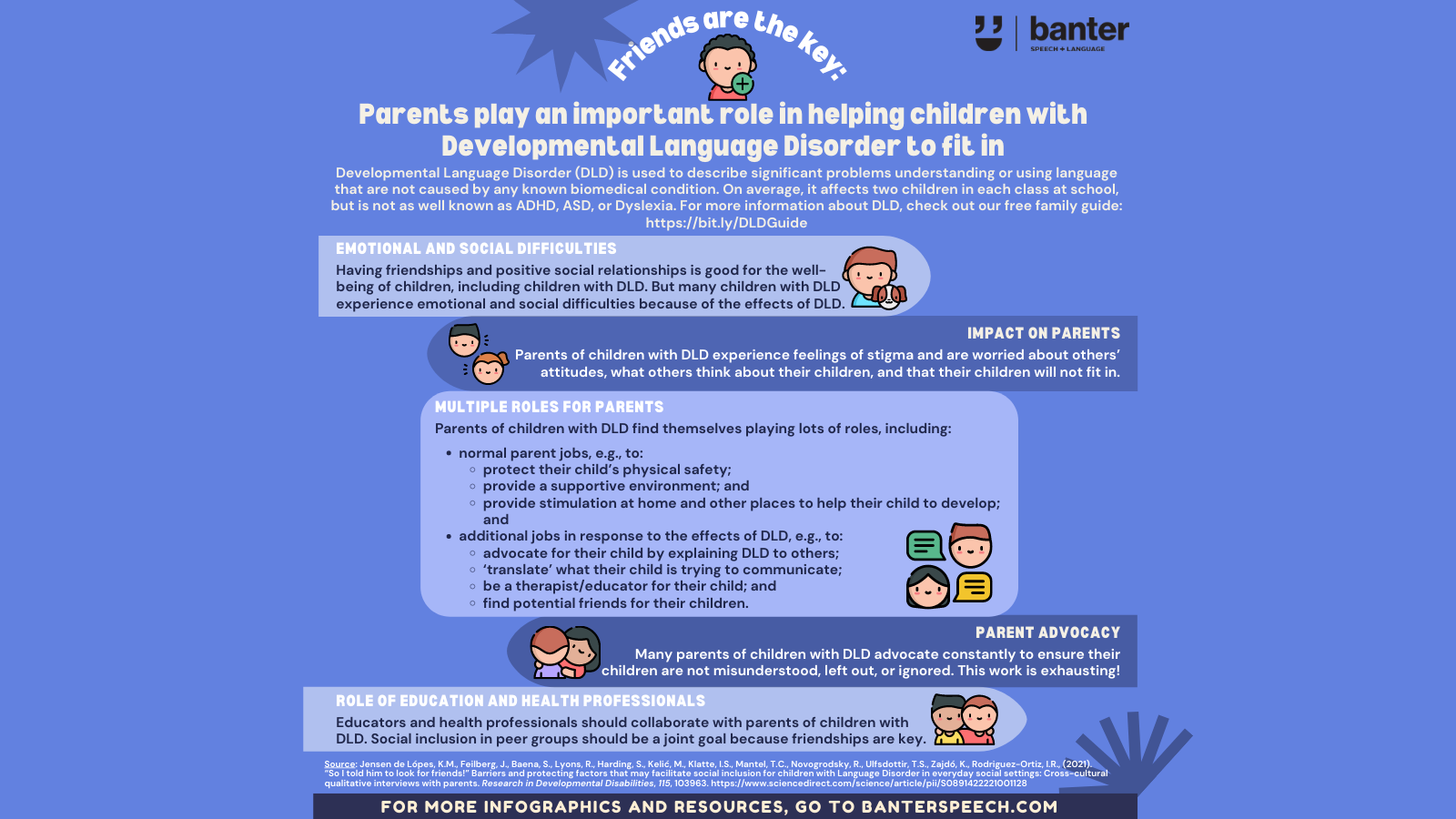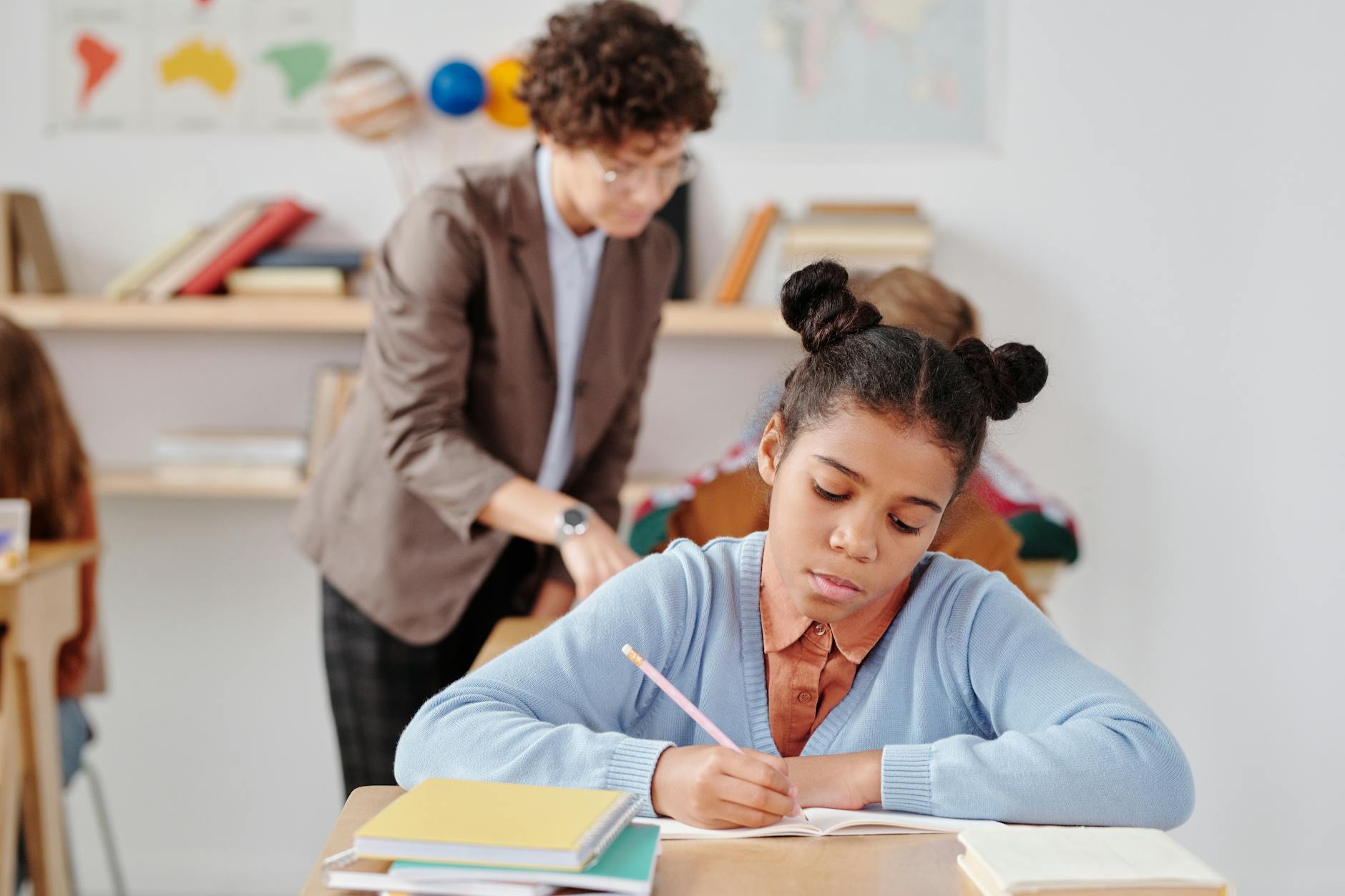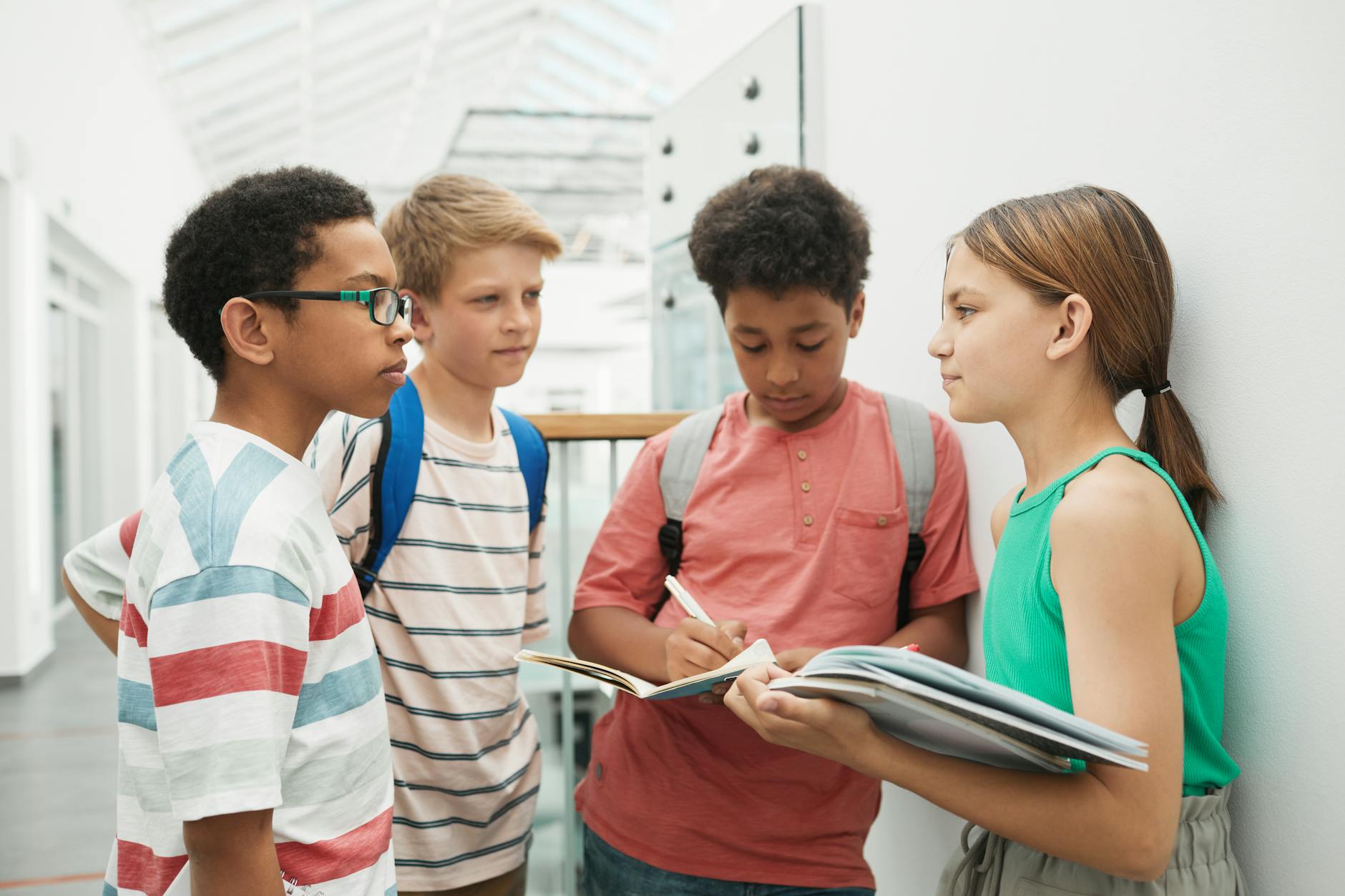Friends are the key: Parents play an important role in helping children with Developmental Language Disorder to fit in
I don’t say much in public about my experience as a parent of a teenager with Developmental Language Disorder (DLD), but this research really hit home. Parents need our support as they do the hard work of helping their children to make friends and to be included in everyday activities. Thanks, as always, to the researchers.

DLD is used to describe significant problems understanding or using language that are not caused by any known biomedical condition. On average, it affects two children in each class at school, but is not as well known as ADHD, ASD, or Dyslexia. For more information about DLD, check out our free family guide here.
Having friendships and positive social relationships is good for the well-being of children, including children with DLD. But many children with DLD experience emotional and social difficulties because of the effects of DLD.
Parents of children with DLD experience feelings of stigma and are worried about others’ attitudes, what others think about their children, and that their children will not fit in.
Parents of children with DLD find themselves playing lots of roles, including:
- normal parent jobs, e.g., to:
- protect their child’s physical safety;
- provide a supportive environment; and
- provide stimulation at home and other places to help their child to develop; and
- additional jobs in response to the effects of DLD, e.g., to:
- advocate for their child by explaining DLD to others;
- ‘translate’ what their child is trying to communicate;
- be a therapist/educator for their child; and
- find potential friends for their children.
Many parents of children with DLD advocate constantly to ensure their children are not misunderstood, left out, or ignored. This work is exhausting!
Educators and health professionals should collaborate with parents of children with DLD. Social inclusion in peer groups should be a joint goal because friendships are key.
Main source:
Jensen de Lópes, K.M., Feilberg, J., Baena, S., Lyons, R., Harding, S., Kelić, M., Klatte, I.S., Mantel, T.C., Novogrodsky, R., Ulfsdottir, T.S., Zajdó, K. and Rodriguez-Ortiz, I.R., (2021). “So I told him to look for friends!” Barriers and protecting factors that may facilitate social inclusion for children with Language Disorder in everyday social settings: Cross-cultural qualitative interviews with parents. Research in Developmental Disabilities, 115, 103963. Available here.
Related articles:
- Developmental Language Disorder: A free guide for families
- Let’s cut to the chase: when should I seek help from a speech pathologist for my child?
- Developmental Language Disorder: Key Red Flags
- Does my child have a language disorder? 6 questions speech pathologists should ask before assessment
- ‘My son (daughter) has been diagnosed with a developmental language disorder. How much treatment should he (she) get? How often?’
- Speaking for themselves: why I choose ambitious goals to help young children put words together
- Following instructions: why so many of us struggle with more than one step
- 24 practical ways to help school-aged children cope with language and reading problems at school and home
- Dyslexia vs Developmental Language Disorder: same or different, and what do we need to know about their relationship?
- Your right to know: long-term social effects of language disorders

Hi there, I’m David Kinnane.
Principal Speech Pathologist, Banter Speech & Language
Our talented team of certified practising speech pathologists provide unhurried, personalised and evidence-based speech pathology care to children and adults in the Inner West of Sydney and beyond, both in our clinic and via telehealth.








